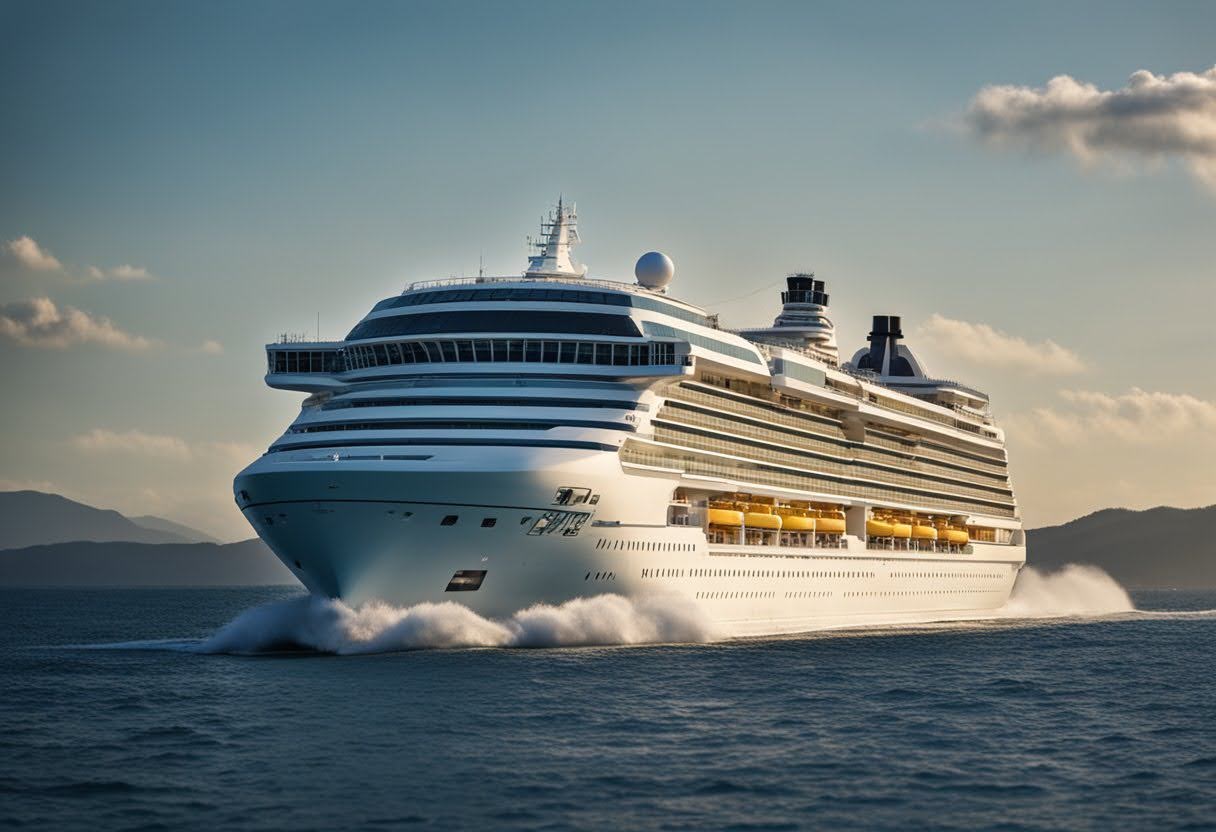Cruise ship stabilizers play a critical role in ensuring passenger comfort by minimizing the ship's motion, especially in rough seas. These stabilizers function by using fin-like structures extending from the hull that adjust their angle to counteract waves, effectively reducing the ship's roll. It’s a fascinating blend of engineering and innovation that enhances the cruise experience.
Stabilizers achieve their purpose through both active and passive systems. Active stabilizers adjust fins in real time based on sensors that monitor the ship's movement, whereas passive systems rely on design and placement to mitigate roll. This technology allows cruisers to enjoy a smoother journey, even when the seas are unpredictable.
Principles of Stabilization
The stabilization of a cruise ship involves specific principles to counteract the effects of rough seas.
Understanding Ship Dynamics
Ships are subject to dynamic forces due to waves and wind, causing rolling motions. Roll is the side-to-side tilting of the vessel that can lead to discomfort and operational challenges.
To minimize roll, ships use stabilization techniques that calculate the ship’s speed and the prevailing sea conditions. The goal is to achieve a balance where the ship remains stable and upright despite unpredictable waves, making it crucial for avoiding maritime accidents.
Stabilizer Systems Overview
Stabilizer systems include fins and gyroscopes to reduce rolling. Fin stabilizers extend from the ship’s hull and adjust their angle against the water flow, generating forces that counteract roll. These systems are usually deployed when the ship reaches a certain speed, enhancing their effectiveness.
Gyroscopic stabilizers maintain vessel stability by using a spinning flywheel to exert torque, combating motion variances. Both systems cover different aspects of stabilization, offering redundancy and flexibility.
Types of Stabilizers
Cruise ship stabilizers are essential for minimizing roll and providing a comfortable journey.
Fin Stabilizers
Fin stabilizers are the most common form of stabilizers on large cruise ships. These fin-like protrusions extend from both sides of the vessel below the waterline. Controlled by a hydraulic system, they pivot to counteract the ship's rolling motion caused by waves. The mechanism is usually computer-controlled, allowing real-time adjustments for optimal stability during voyages.
Gyroscopic Stabilizers
Gyroscopic stabilizers use the principles of angular momentum and gyroscope action to maintain a vessel's stability. These systems feature a rapidly spinning flywheel that adjusts its orientation based on the ship's motion. Unlike fin stabilizers, gyroscopic stabilizers don't protrude from the ship, reducing the risk of damage and drag.
Anti-Roll Tanks
Anti-roll tanks utilize the natural movement of water to counteract a ship's roll. These tanks stretch across the vessel and are filled with water that shifts in response to rolling.
The design is intended to move water between the tanks in a way that balances the roll effectively. This passive stabilization relies on gravity and simple physics rather than mechanical parts or hydraulics. While offering a quieter and maintenance-free solution, the effect might not be as immediate or precise as other stabilizers.

Impact and Importance
Cruise ship stabilizers play a vital role in enhancing safety measures, ensuring passenger comfort, and promoting fuel efficiency. These devices are essential components that help mitigate the effects of rough seas and improve overall operational performance.
Safety Implications
The inclusion of stabilizers in cruise ships significantly reduces the risk of maritime accidents by decreasing the ship's roll during rough weather. This stability is essential for maintaining safe navigation and ensuring personnel on board are secure.
Stabilizers help prevent accidents like falling cargo or onboard slips that can occur in strong waves. Enhanced stability is critical for precise steering and maneuverability, which are vital during docking or emergency maneuvers.
When the ship is stable, it minimizes the structural stress on the vessel's hull, prolonging its lifespan and reducing maintenance issues.
Passenger Comfort
Passenger comfort is greatly enhanced by minimizing seasickness and discomfort caused by rolling motions. Cruisers often face the challenge of maintaining comfort while navigating turbulent waters, and stabilizers mitigate these disruptions effectively.
By controlling side-to-side motion, these devices let passengers enjoy amenities like dining and entertainment without experiencing discomfort. This satisfaction increases the likelihood of positive reviews and repeat business.
Stabilizers also ensure onboard activities can continue uninterrupted, keeping guests engaged and entertained. When passengers feel at ease, their experience is significantly improved, making stabilizer-equipped ships more attractive to travelers seeking a smooth journey.
Fuel Efficiency and Environmental Impact
Stabilizers contribute to fuel efficiency by ensuring the ship maintains a level orientation, which optimizes engine performance. Less rolling means less resistance, and thus, reduced fuel consumption.
Fuel efficiency is tightly linked to environmental impact; decreased consumption results in lower greenhouse gas emissions. By operating more smoothly, cruise ships lessen their footprint on marine ecosystems.
Using stabilizers helps in minimizing operational drag, which translates to economic savings and reduced ecological harm. With shipping industries increasingly focusing on sustainable practices, stabilizers offer a way to enhance both efficiency and environmental responsibility.







